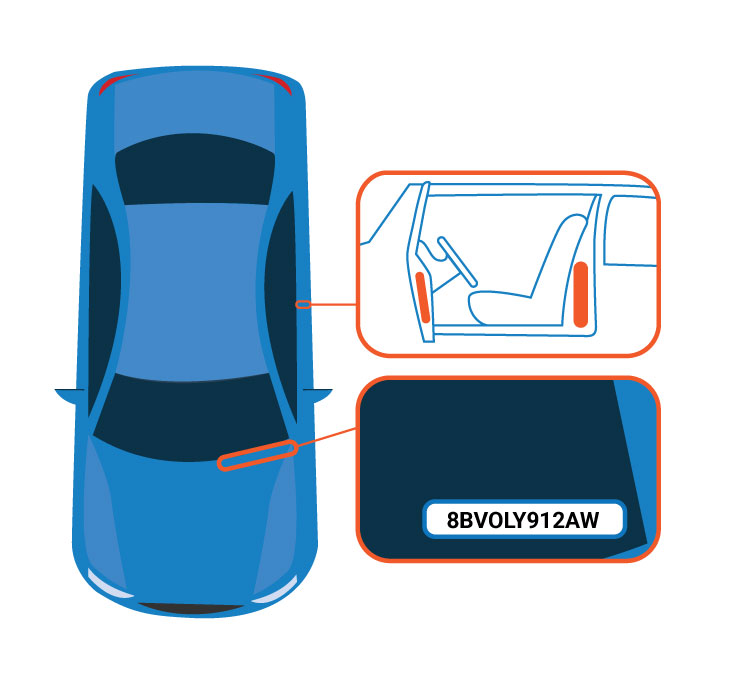VEHICLE SAFETY RECALLS WEEK
March 8th-12th
Every vehicle recall is serious and affects your safety. That’s why Vehicle Safety Recalls Week, which begins March 8, focuses on the importance of getting recalls fixed immediately and checking for recalls at least twice a year.
Check for Recalls
3 Steps to Check Your Vehicle

- Find your Vehicle Identification Number (VIN)
Look for the 17-character VIN on the lower left of your car’s windshield, or on the label inside your driver-side doorjamb (see example). You might also find your VIN on your vehicle’s registration or your insurance documents. - Search using your VIN at NHTSA.gov/Recalls. Your search will tell you if there’s an open safety recall affecting your vehicle and what steps to take.
- If you have an open recall, immediately get your vehicle repaired for free at a local dealership. Follow the steps indicated by the response to your VIN search. Your vehicle’s manufacturer is required by law to address your recall — and again it’s a FREE repair.
Check Car Seats, Tires, and Vehicle-Related Equipment Too
Recalls are also issued for child car seats, tires and vehicle-related equipment — like bike racks. If any of these items are recalled, manufacturers are required to fix the problem by repairing it, replacing it or offering a refund. You can check for these safety recalls at NHTSA.gov/Recalls.
SaferCar App Checks for Recalls Year-round
With NHTSA’s free SaferCar app, you can get recall information sent to your phone. Simply download our updated app, for Android and iOS, add your vehicle and equipment, and we’ll send you an alert if a safety recall is issued.
If you’ve already downloaded the app, Vehicle Safety Recalls Week is a good time to open the app and make sure your vehicle and equipment information is up-to-date.
The Stakes
NHTSA administered nearly 900 safety recalls affecting more than 55 million vehicles and other equipment in 2020. Yet only about 75% of vehicles recalled in a given year are ever fixed. Being part of that other 25% puts you, your passengers, and others on the road at risk.
Vehicle Safety Recalls Week coincides with the week leading up to daylight saving time. Traditionally, this day has been a cue to check smoke detector batteries as you change your clocks. You should also make it a habit to check for vehicle safety recalls when daylight saving time begins and ends.
Source: National Highway Traffic Safety Administration
